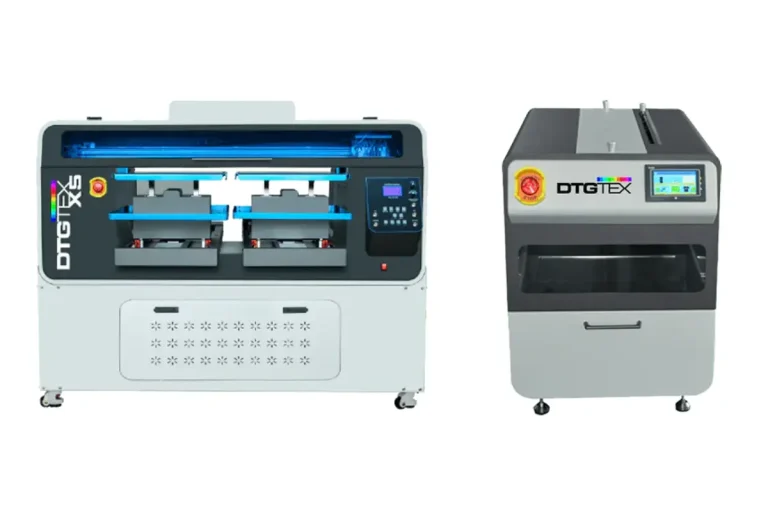Preparing for High-Demand Tech Jobs in a Rapidly Evolving Landscape
In a world where technology is advancing at an unprecedented rate, preparing for high-demand tech jobs has never been more essential. The rapid evolution of fields like cybersecurity, artificial intelligence, data science, and cloud computing demands that professionals stay ahead of the curve.
Whether you’re an aspiring tech enthusiast or a seasoned professional looking to enhance your skills, focusing on specific strategies can help you secure your place in this fast-paced industry.
Pursuing Higher Education: A Crucial Step in Mastering the Evolving Tech Landscape
In today’s dynamic tech environment, higher education plays a critical role in equipping professionals with the knowledge and skills required to navigate the ever-changing technological landscape. Among the various fields within technology, cybersecurity has emerged as one of the most crucial areas to master.
As cyber threats continue to grow in complexity and volume, organizations are increasingly investing in cybersecurity solutions, making it a high-demand profession. Pursuing specialized programs, such as a cybersecurity online masters degree, provides in-depth knowledge on topics ranging from threat detection and mitigation to data privacy laws and compliance.
This type of higher education doesn’t just build foundational skills; it offers insights into the latest industry trends, helping you stay current in this rapidly evolving field.
An online master’s degree in cybersecurity is particularly beneficial as it offers the flexibility to learn from anywhere while maintaining access to cutting-edge resources.
With experts predicting even greater demand for cybersecurity professionals in the coming years, investing in education is a strategic move that positions you as a valuable asset in the tech industry.

Building Technical Expertise: The Foundation for Success in High-Demand Roles
As tech roles become more specialized, having a solid technical foundation is key to success. Whether you’re aiming to become a software developer, data analyst, or IT manager, technical expertise is a non-negotiable requirement.
While general tech knowledge can get you started, you need to focus on mastering specific programming languages, software tools, and platforms relevant to your chosen field.
For instance, if you’re eyeing a career in software development, languages like Python, Java, and C++ are essential, while cloud computing professionals should be well-versed in platforms such as AWS, Microsoft Azure, and Google Cloud.
Similarly, those entering the field of data science should master data visualization tools like Tableau and programming languages such as R and SQL. The key is to continually update your technical skillset as new tools and technologies emerge.
Online courses, coding boot camps, and hands-on projects can supplement formal education, allowing you to build expertise that employers value.
Staying adaptable is also critical; what is considered cutting-edge today could become obsolete tomorrow. By continuously honing your technical skills and staying curious about new developments, you’ll be better equipped to handle the demands of high-pressure tech environments.
Gaining Industry Experience: Bridging the Gap Between Knowledge and Practice
No matter how advanced your education is, nothing compares to real-world experience. Practical experience bridges the gap between theoretical knowledge and its application in professional settings.
Internships, freelance work, and even volunteering on tech projects can provide invaluable hands-on experience that textbooks simply can’t replicate.
Industry experience doesn’t just help you apply what you’ve learned; it also builds your problem-solving skills, which are highly valued in tech roles. For example, cybersecurity professionals must constantly adapt to new threat landscapes, and experience dealing with real-time incidents prepares you to respond effectively.
Likewise, for roles in software development, tackling coding challenges in real-world projects sharpens your ability to write efficient code, debug issues, and work under tight deadlines.
Networking is another benefit of gaining industry experience. The connections you make during internships or while working on collaborative projects can open doors to job opportunities, mentorship, and ongoing learning.
Industry events, tech meetups, and online communities are great places to meet professionals who can provide advice, share job leads, and introduce you to new ideas and technologies.

Soft Skills: A Key Differentiator in a Competitive Tech Market
While technical expertise is vital, soft skills are equally important in today’s tech job market. Communication, teamwork, adaptability, and problem-solving are some of the soft skills that set top candidates apart from the rest.
In high-demand tech jobs, you’ll likely be collaborating with cross-functional teams, making it essential to communicate complex ideas clearly and work well with others.
For instance, a cybersecurity expert might need to explain a security threat to non-technical stakeholders, requiring both clarity and diplomacy. Similarly, a data scientist may work alongside marketing or sales teams to translate data insights into actionable business strategies.
Soft skills enable you to bridge the gap between technology and business needs, making you a well-rounded professional who can contribute beyond just technical tasks.
Leadership is another critical soft skill, especially for those aspiring to advance into management roles. The ability to inspire, guide, and manage teams, even in challenging situations, can significantly impact your career growth.
Developing these skills can be achieved through mentoring others, taking on leadership roles in group projects, or participating in workshops focused on communication and team dynamics.
Adapting to Emerging Technologies: Staying Relevant in a Shifting Industry
The tech landscape is known for its rapid evolution, and staying relevant requires adapting to emerging technologies. Whether it’s artificial intelligence, blockchain, or edge computing, today’s tech professionals need to keep up with the latest advancements.
Following industry news, subscribing to tech journals, and participating in specialized online forums can keep you informed about upcoming trends.
Moreover, embracing a mindset of continuous learning is essential. Rather than becoming complacent with your existing skills, always seek opportunities to learn about the latest tools, frameworks, and methodologies in your field. Online learning platforms, tech blogs, and webinars are excellent resources for expanding your knowledge.
Certifications in specialized areas, such as cloud computing or machine learning, can also boost your credentials and keep you competitive in the job market.
As technology advances, roles that don’t exist today could become mainstream within a few years. Being proactive about upskilling and reskilling will help you pivot smoothly when industry demands shift.
By anticipating changes and preparing accordingly, you can future-proof your career and continue to thrive in a landscape that’s always in flux.
Navigating the tech industry requires a multi-faceted approach. Pursuing advanced education, building technical expertise, gaining real-world experience, honing soft skills, and staying adaptable to new technologies are all critical steps to take.
As the tech landscape continues to evolve, those who invest in continuous learning and remain agile in their careers will be best positioned to succeed.
Conclusion
Whether you’re just starting your journey or looking to advance in your tech career, focusing on these strategies will make sure you stay competitive in an increasingly demanding job market. Preparing now for the future guarantees that you’ll be ready to tackle whatever challenges the tech world throws your way.
FURTHER READING
- Where can you find the best custom software development?
- Top Trends in AI-Driven Services for Businesses






